【FOUCS】Face inequality and bridge the gap
Throughout the world, inequalities of income, gender, age, physical disability, sexual orientation, race, class, religion, and opportunity still exist within and between countries. These inequalities threaten long-term socio-economic development and undermine people’s sense of achievement and self-worth, even leading to crime, disease and environmental degradation. The construction of smart cities can not ignore people-oriented, especially considering the relatively vulnerable groups, and no one should be left behind. SDGs10 refers to empower and promote the social, economic and political inclusion of all, irrespective of age, sex, disability, race, ethnicity, origin, religion or economic or other status. This week’s IN FOUCUS will introduce five cases of innovative cities to reduce inequality.
Vienna, Austria
Gender-sensitive park design
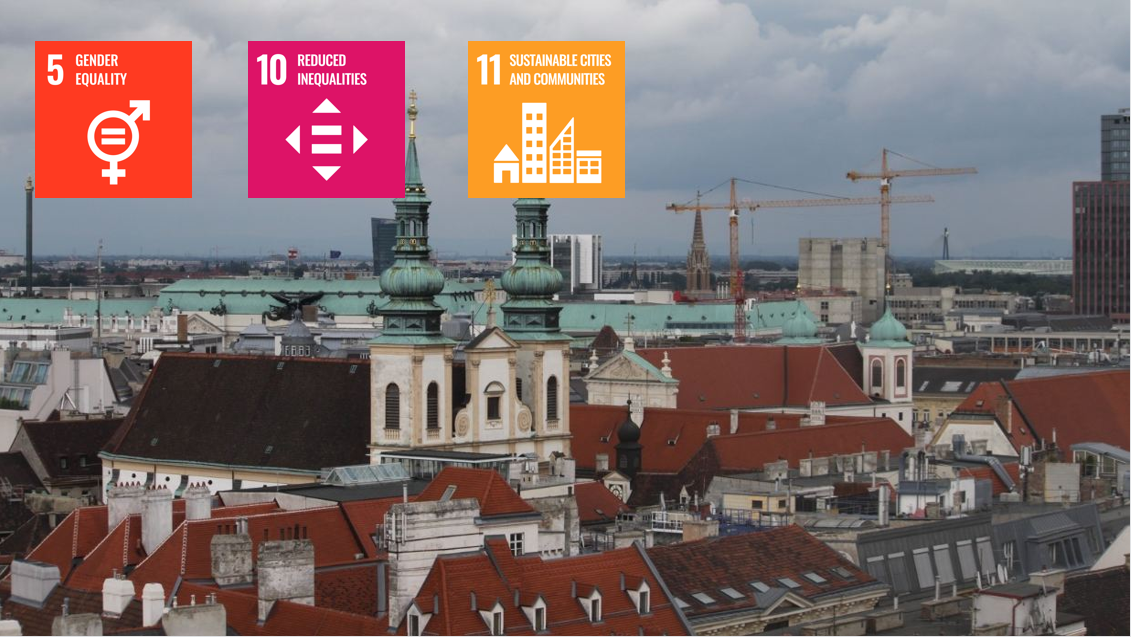
Shortage of open areas is characteristic for big cities. In comparison with boys, girls often tend to be more reserved. From the age of 10 to 13 years, girls withdraw almost completely from public parks.
Gender-sensitive solutions to enable girls and young women to utilize public spaces and parks in a safer and better way. The basic idea of re-designing existing parks in gender-sensitive ways is to give girls and young women better positions in public spaces and public parks. Therefore, specific interests concerning games, sports, and other leisure-time activities are to be incorporated into public park design. The objective was to focus on girls’ interests by re-designing two public parks, and increase the presence of girls in public outdoor spaces expanding their scope of action. Another purpose was to increase sensibility for gender questions in general and to have intensive professional exchanges during the planning phase.
More info:
https://use.metropolis.org/case-studies/gender-sensitive-park-design
Berlin, Germany
Integration Facilitators program
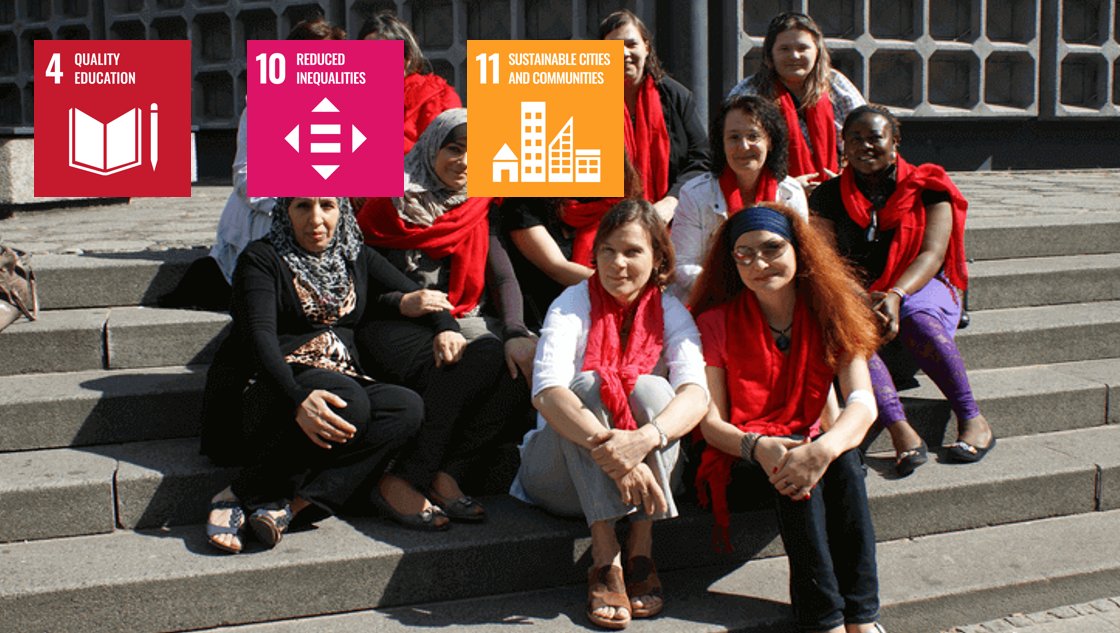
Newly arrived families living in disadvantaged circumstances often have little or no contact with the public agencies who can provide services to assist them in their daily lives. The program established in Neukölln aims to reach migrant parents through home visits by integration facilitators who are mainly women. The facilitators make contact with families by reaching out to mothers at schools, playgrounds, doctors, mosques, and shops. The facilitators provide information on topics relevant to issues such as migration, German language skills, work, law, and raising children.
The program provides training and qualifications for unemployed people to work as mediators who facilitate the integration of new arrivals in local neighbourhoods.The programme has been successful in empowering women. Both neighbourhood facilitators and women who join the programme benefit in terms of confidence building and positive social interaction.
More info:
https://use.metropolis.org/case-studies/integration-facilitators
Montevideo, Uruguay
Uruguay Kitchen Program
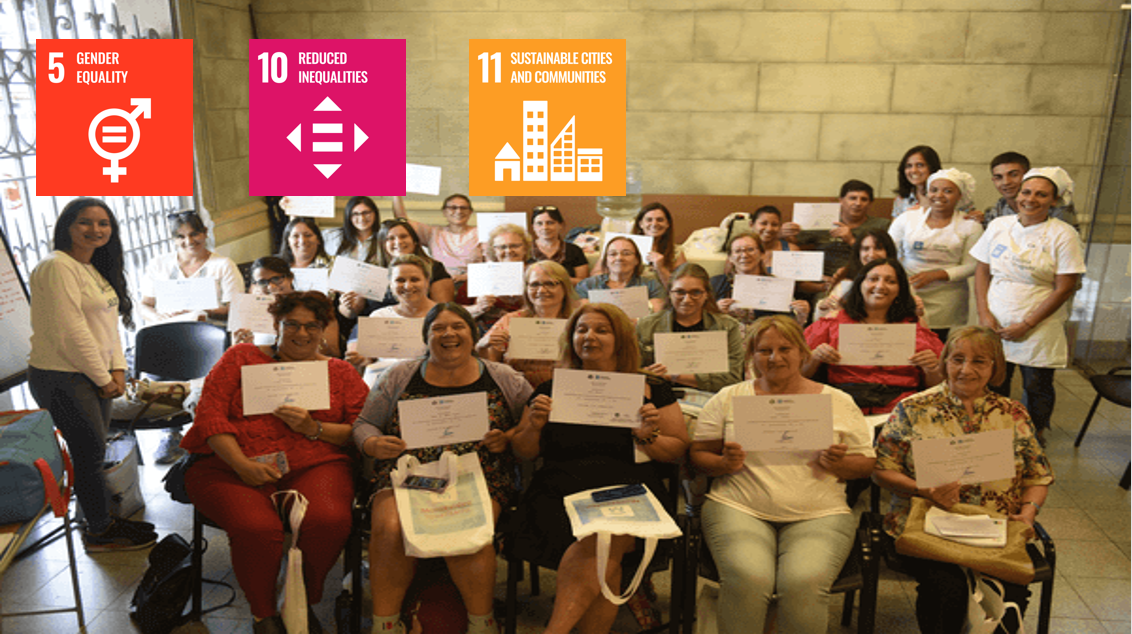
The Municipality of Montevideo through the Secretariat of Education for Citizenship operates the food education program ‘Cocina Uruguay’ (Uruguay Kitchen Program). The program acknowledges a citizen’s right to good health and well being by providing free classes in food education. The program has a gender and human rights focus.
The Uruguay Kitchen Program is available to all residents of the city and the surrounding metropolitan area and is serviced by a mobile unit equipped with a kitchen designed for teaching. Additionally, there is a fixed classroom located in the Agricultural Market of Montevideo. The program seeks to promote healthy food preparation and consumption using seasonal and low-cost food. Emphasis is placed on nutritional aspects that encourage healthy eating, attitudes and practices.
More info:
https://use.metropolis.org/case-studies/uruguay-kitchen-program
El Alto, Bolivia
Strengthening the Women through Cultivation of Agricultural Products
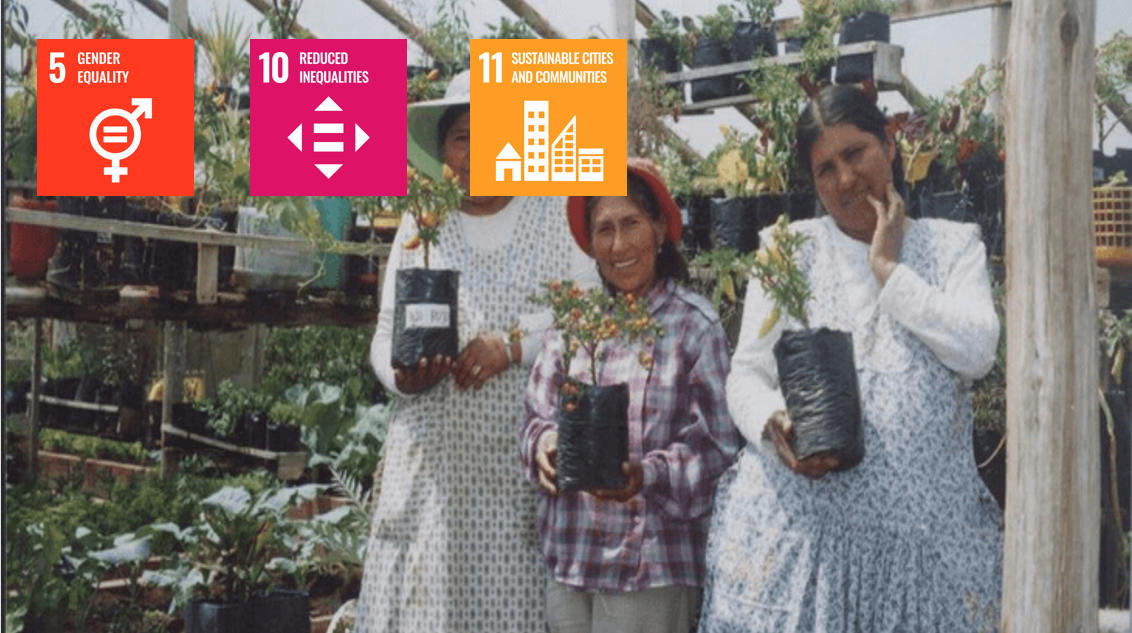
El Alto is a former slum area in Bolivia’s capital city La Paz. The main part of the population works in the informal sector and can barely read or write. Only few people achieve an income of more than 200 Dollars monthly. Especially children suffer from this situation and the widespread malnutrition.
The project cooperates with women and mothers on self-sustaining agriculture by enhancing their knowledge on cultivation and care of crops and livestock. Through the cultivation of agricultural products, the families are able to significantly improve their diet. Additionally, around 70 children in the age of 6 to 13 years profit from a daily delivery of fresh fruits and vegetables, which they receive in the nursery. Since the children’s diet is more balanced, pedagogic staff reports improvements in the children’s attention and their overall performance in school. This measure also allows women to generate an additional income by vending some of the products and, altogether, to stabilize their social situation.
More info:
https://use.metropolis.org/case-studies/strengthening-the-women-of-el-alto-bolivia
Bogotá, Colombia
BibloRed
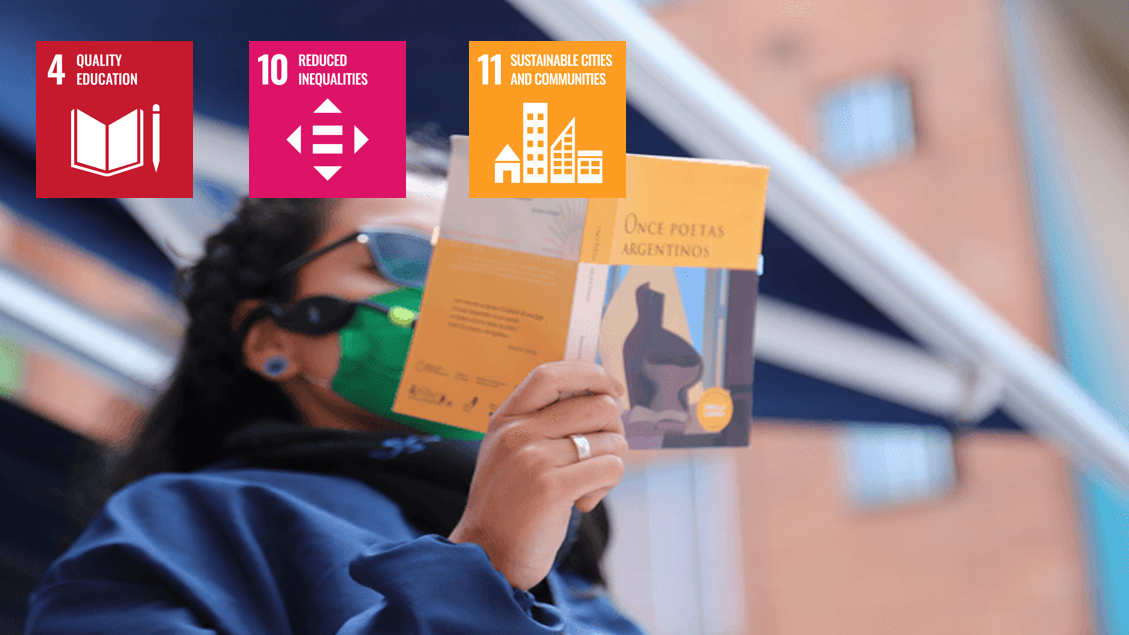
BibloRed, is a service that provides citizens access to books, culture, research, science, technology and innovation. It contributes to the cultural empowerment of the city’s local communities by providing spaces for citizens to access and use the facilities and resources provided by the Network.
The Network is made up of 128 reading spaces across the city. BibloRed collaborates with public and private entities in areas such as education, health, social integration and security, to offer library services in spaces that focus on providing access to the city’s vulnerable population. BibloRed is part of the District Reading and Writing Plan, Read for Life, led by the Ministry of Culture, Recreation and Sports. The program aims to increase the literacy of citizens with a specific focus on the vunerable population.
More info:
https://use.metropolis.org/case-studies/biblored
Originally published on use: urban sustainability exchange. use is an open knowledge exchange platform dedicated to sustainable city making.
Visit use: https://use.metropolis.org/


 In Focus | World Cities Day: People-Centred Smart Cities
In Focus | World Cities Day: People-Centred Smart Cities City Stories | Fostering community resilience: A lifeline for the Central African Republic
City Stories | Fostering community resilience: A lifeline for the Central African Republic In Focus | Innovative Education, Empowering Futures
In Focus | Innovative Education, Empowering Futures




















 Tel: +86 020 3780 4434
Tel: +86 020 3780 4434 Email: info@guangzhouaward.org
Email: info@guangzhouaward.org Adress: Unit 01-7, 28th Floor, No. 7, Chunrong 3rd Road, Tianhe District, Guangzhou, Guangdong, 510000, PRC
Adress: Unit 01-7, 28th Floor, No. 7, Chunrong 3rd Road, Tianhe District, Guangzhou, Guangdong, 510000, PRC




